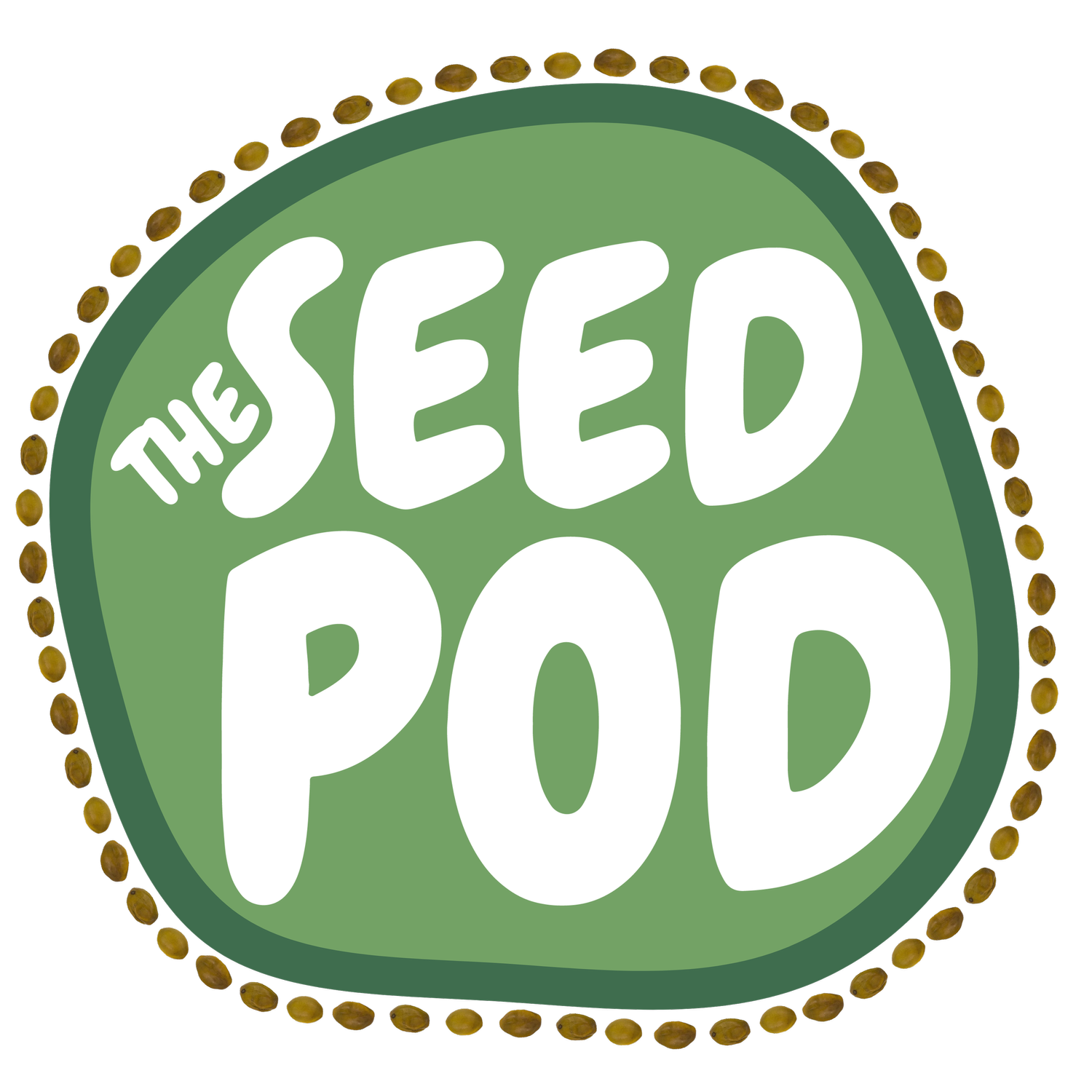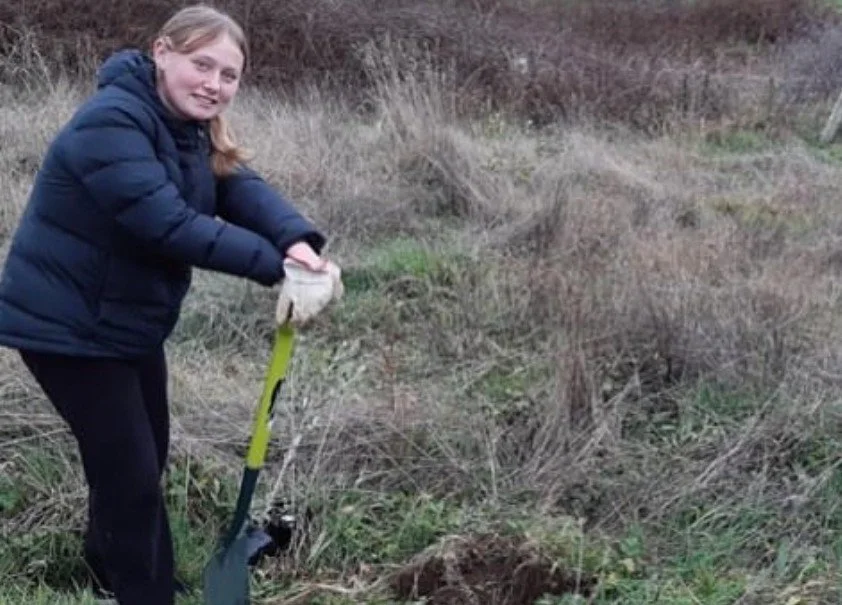Neurodiversity and Nature Connection
Inspired by Spencer Potbury’s stories of neurodiversity in nature from Episode 4 of The Seed Pod. (podcast).
We have brought together a collection of stories from our community about their experiences with neurodiversity, and how nature has engaged them in deep learning opportunities.
Read our stories below:
Being neurodivergent and a nature-nerd, for me, has always gone hand in hand.
I am often asked, why do you like birds so much? How do you know so much about them? Usually I just say, it's because they're beautiful! Or because they're smart and charismatic! All of which is very true, but really, it is just my hyper fixations and obsessions manifesting themselves in a deep love of birds.
Handled under permit
This meant I found it hard to apply myself in things like chemistry or maths, but thrived in things that I could make about birds, or other things I loved. I once convinced my physics teacher to let me teach one of our lessons about the physics of bird flight, how their wings were shaped to increase lift when flying. I brought in gannet bones to show how they were hollow, and a taxidermy wing for people to hold and drag through the air. For once I found myself enjoying a class I normally struggled with.
I left school early to follow a career in conservation, doing work everyday that I knew was helping contribute to a better environment for our native birds. Now everyday I am fulfilled and completing tasks that I can happily put all of my energy and passion into.
ADHD still makes things very hard sometimes, but the outdoors is the environment that supports me best and I am so glad I get to call nature my office!
-Charlie
Since I was young I've always been distracted by nature, and more specifically - patterns in nature.
When I was 5 I was booted from playing goalie in my little football team (which is a social death-sentence in somewhere like Yorkshire) because I was too busy making daisy chains. Now, an education and a career later, I also realise I was looking at the clumped distribution of those daisies, and the regeneration of adventitious angiosperms in the disturbed goal-habitat in a field of monocot grasses.
Patterns and trends have always fascinated me; while my dyscalculia made mathematics impossible, algebra has always been incredibly easy. Nature is full of trends, and (unlike us) doesn't pretend it could ever maintain a status quo.
These changes can (and should!) be analysed and quantified. However, I think our vulnerable, wild planet benefits significantly from the people whose immersion of nature extends beyond the rigours of the scientific method*. I think being an ecologist only requires a love of nature, and a good group of mates to help you through that one awful stats paper that your dyscalculia makes nearly impossible (thanks Tarn!).
-Ellis
Neurodiverse ākonga/students in our programmes have brought much deeper learning and wonderings to our whole group. The ability to focus over time on a particular interest such as fairies, rubbish, pests, dragons and macroinvertebrates has meant that many of our neurodiverse ākonga have led adventures of discovery into topics of interest at a much deeper level than others may have gone to. This has also meant that friendships are constantly evolving and growing around these interests, with our neurodiverse ākonga often taking leadership roles and getting lots of practise at social skills while managing their mates.
- Leo (Director/Kaiako, Bush Sprouts Nature School)
I was only diagnosed with autism in the past two years, but my bond with nature has been a lifelong one. From fishing and camping as a child, my love for the environment started early. In primary school, my interest in environmental and nature issues blossomed, and I often found myself immersed in these topics.
By year 7, my mental health began to deteriorate due to my undiagnosed autism. Coping with these struggles was challenging, but I found solace in nature. During intervals and lunchtimes, I would escape to the school garden, planting and gardening with the support of an amazing environmentalist who expanded my knowledge and gave me opportunities to express my love for nature. Gardening became my therapeutic escape.
High school brought new opportunities to deepen my connection with nature. I was fortunate to take classes in marine and land sustainability and environmental studies. These classes allowed me to focus on my special interests for my assessments, which significantly enhanced my learning experience. Last year, I completed a project on invasive species and trapping, a topic I'm passionate about. Through various organizations, I've been able to actively engage in these interests.
Being connected with nature has profoundly helped me manage my autism. It brings clarity to my mind, allowing me to escape the pressures of the mainstream world and proceed at my own pace, free from judgment and being overwhelmed. In nature, I find peace and joy, happiness, and I can fully appreciate its beauty and tranquility.
-Charlotte
We are a neurodiverse homeschooling family in Canterbury with children aged 4, 7 & 9. Our local homeschooling community has many neurodivergent children who enjoy spending hours outside for their learning.
My children find being outside in nature regulating for their mental-emotional wellbeing and stimulating for finding new interests such as caring for small creatures like snails & monarch butterflies.
Having unstructured time to explore and expand upon their own interests in an outside environment allows them to pace their learning and go as deep as they wish.
It improves my son's attention and focus while providing the sensory input needed to regulate his nervous system for retaining information.
My 7 year old son loves to garden and get his hands dirty. He has an incredible visual memory which has helped him to identify many different plants and trees not only in our gardens, but also when we go on foraging walks in our local region. I believe as he is able to continue his pursuit of understanding nature and all its intricacies that he will find himself in advanced study of ecology and biology.
-Carmel
Since my early childhood I have always had a keen interest in nature. I found joy and endless entertainment in adventuring and using my imagination creating, playing, and observing outside.
People had always commented on how much of a keen eye I had for spotting tiny bugs and other critters when out walking in the bush, and I just thought that was a skill I had honed over the years. This could be true, however now that I have recently been diagnosed with ADHD I can understand that I was likely able to hyper-focus on the smaller things and that they would stand out to me moreso than they do for others.
I also realised that due to my aphantasia (mental blindness/lack of senses), my mind was being fully engaged and I was more aware in nature as I was able to physically explore with my senses and learn through experience rather than fantasy and visual imagination.
I have experienced the incredible engagement that our neurodiverse communities can have out in nature as an educator, often seeing huge development within the students who are labelled disengaged within the four walls of the classroom. When we provide all students with a range of experiences to to discover and fully engage in their passions, the curiosity, and learning often comes naturally. Students then often become the experts within these interests, helping to connect with their peers and grow leadership skills which further builds their confidence and often their engagement in other areas of school too.
-Sian














